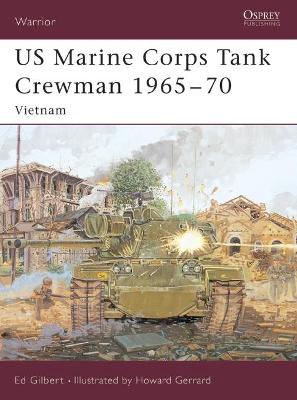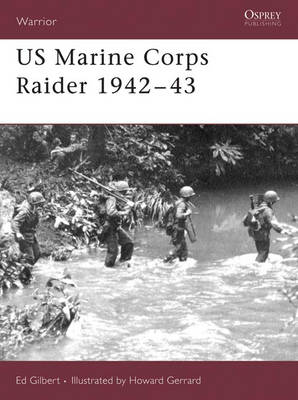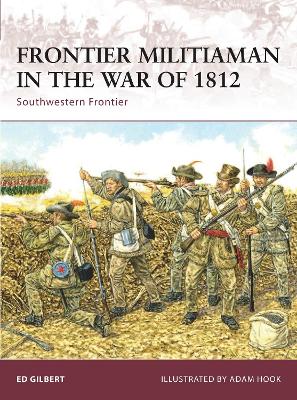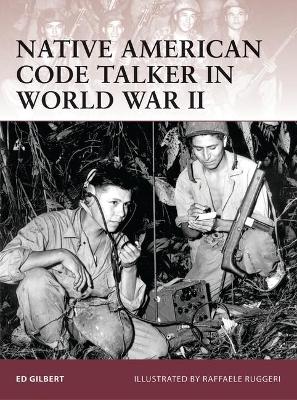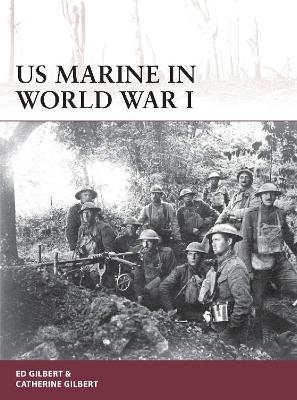Warrior
3 primary works • 6 total works
Book 90
Following Korea, by 1960 tanks and their crews had proved themselves to be a fundamental part of the Marine Corps' combined arms team. When the Marines were ordered to Vietnam in 1965, they took their tanks with them. This book explores this decision, which created a political storm. The presence of the tanks became a lightning rod for accusations of an 'escalation' of the war. Nevertheless, the tanks not only proved their value in the anti-guemilla campaigns, but amid the bitter conventional fighting and extraordinary casualties at Hue City. The ability to undertake such radical change and to prevail demonstrated the versatility, courage and tenacity that are the hallmarks of the 'ordinary' Marine.
Book 109
The US Marine Raider was an "elite within an elite." Modelled on British Commandoes, they were the earliest forerunners of the various Special Operations units of the modern US military. These units would conduct operations with only the equipment they could carry on their backs; their heaviest weapons were light mortars and light machine guns. Highly trained in close-in fighting, the Raiders were expected to be equally skilled in watercraft, jungle survival, and jungle warfare. This title will follow two Raiders through some of the toughest raining ever to be experienced by a Marine and onto combat during the Makin Raid, and through the horrific jungle battles of the Solomon Islands.
Book 129
'Were it not for the Navajo Code Talkers the Marines would never have taken Iwo Jima and other places' (Anonymous, Marine Corps signal officer). Ed Gilbert uses personal interviews with veterans to tell their fascinating story. Beginning with the first operational use of Native American languages in World War I, he explores how in World War II the US again came to employ this subtle, but powerful 'weapon.' Despite all efforts, the Japanese were never able to decode their messages and the Navajo code talkers contributed significantly to US victories in the Pacific. Approximately 400 Navajos served in this crucial role. Their legend of the 'code talker' has been celebrated by Hollywood in films, such as Windtalkers, and this book reveals the real-life story of their extraordinary involvement in World War II.
The words 'Retreat? Hell, we just got here' have become a central part of the legend of the US Marine Corps, indicative of its reputation for dogged determination and bravery. Uttered at the height of the fierce battle for Bellau Wood, the phrase came to define the Corps, establishing their 'first to fight' ethos in the public eye.
This history follows the experiences of the Marines during the Great War, from their training in the US and France through the fighting in the trenches and battlefields of the Western Front and right up to their occupation duties in the Rhineland. Packed with first-hand accounts and detailed information from the USMC History Division at Quantico, and published to coincide with the 100th anniversary of America's involvement in World War I, this is a timely analysis of one of the US Marine Corps' finest hours.
This history follows the experiences of the Marines during the Great War, from their training in the US and France through the fighting in the trenches and battlefields of the Western Front and right up to their occupation duties in the Rhineland. Packed with first-hand accounts and detailed information from the USMC History Division at Quantico, and published to coincide with the 100th anniversary of America's involvement in World War I, this is a timely analysis of one of the US Marine Corps' finest hours.
Patriot Militiaman in the American Revolution 1775-82
by Ed Gilbert and Catherine Gilbert
Published 20 June 2015
The American Revolution was a decisive conflict, which saw the birth of a new nation. Continental Army regulars fought in massive and famous battles from New England to Virginia, but in the South a different kind of warfare was afoot. Local militia, sometimes stiffened by a small core of the Continental Line, played a pivotal role. This lesser-known war ultimately decided the fate of the Revolution by thwarting the British "Southern strategy". In this title, the authors provide a unique and personal focus on the history of their own ancestors, who fought for the South Carolina Militia, to show just how effective the irregular forces were in a complex war of raids, ambushes, and pitched battles. The book explores the tactics, equipment, leadership and performance of the opposing Patriot and Rebel forces, shining new light on the vicious struggle in the South.
